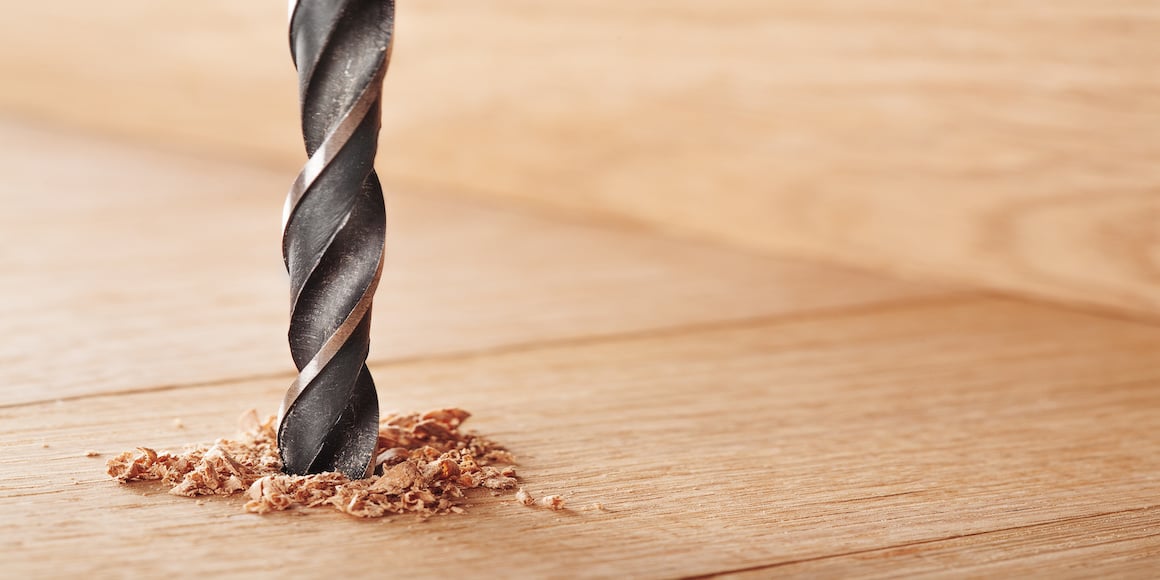
For fasteners to deliver maximum performance, you need clean, precise holes to accommodate them. Blind rivets, threaded inserts, lockbolts, and other fasteners should fit snugly in a clean hole to prevent pullout, fatigue from movement, and other problems. To drill precise holes, you need precision drill bits.
Choosing the best cutting tools for the job is always a consideration, whether you are setting fasteners in the factory or the field. That includes choosing drill bits from leading manufacturers, such as Champion Cutting Tool Corp.
Champion drill bits are among the finest and most popular drill bits and cutting tools, and they are available on the Bay Supply Marketplace. To find the right Champion drill bits and cutting tools for the job, you should know what types of drill bits are available and what to look for.
Different Types of Drill Bits
You want the right drills and drill bits for the job when setting fasteners. You also want a precisely cut hole that is the right size to accommodate the fastener. If the hole is too large, then the fastener will be loose, which could lead to added wear or failure. If the hole is too small, then the fastener is being forced into the hole, which could damage the hole or the fastener and lead to a poor fastening.
Using the right drill is equally important. You use the drill for holes, tap holes, and to drill out old fasteners. You want to choose a drill with the right speed and torque to make a clean hole.
Not all drills and drill bit types are suitable for all applications. You need a drill bit that’s harder than the substance you are cutting. For example, you would use different drills and drill bits to cut holes in steel than you would use to cut holes in aluminum. You also want to ensure the cutting tool creates a clean cut without leaving ragged edges.
Drill bits are made in different configurations using various materials. Most drill bits are made of high-speed steel, which is inexpensive and durable. High-speed cobalt steel is an excellent choice if you need a heat-resistant drill bit. Carbide drill bits are the most expensive but also offer the best performance. Carbide bits last longer, resist heat better, and can operate five times longer than other drill bits, making them ideal for tough materials and deeper holes.
Drill bit designs differ as well. For example, masonry bits differ from steel bits and usually have gentle sloping tips. Wood and steel bits typically have pointed ends, whereas metal bits have wider-angle tips.
In addition to having the right drill and the right drill bit, you want to apply the right pressure when drilling a hole. Adding pressure to try to make a drill bit cut through a harder material usually doesn’t work and only serves to create heat and ruin the bit. The bit should do the work, so choose a bit that’s the right size, the right type, and is harder than the material you are cutting.
Choosing the Right Drill and Bit Type
There are other considerations beyond the drill bit materials and points that you need to consider.
Most drill bits have a dual twist bit, with two twisted channels extending from the tip to the chuck, where the drill holds the bit. The rate of the spiral determines how the bit performs. A fast spiral with more twists per inch will remove material from the hole per revolution, so it’s usually used with lower-speed drills. A low spiral rate is better suited for high-speed drills.
The angle at the point should match the materials. A 90-degree point is sharper and is better suited for softer materials, such as plastic or aluminum. Most drill bits have a 118-degree point, which is suitable for drilling most materials. A 135-degree point is often used for hard materials, such as steel, since the shallower angle won’t dull the bit as quickly.
In addition to the right drill bit material, you can also choose different coatings and treatments:
- Titanium coating: A titanium coating is the next best thing to a titanium drill bit. You can drill hard materials, and they will last six times longer than a high-speed steel bit.
- Black oxide: High-speed steel can be treated using a black-oxide process to reduce friction and increase the life of the drill bit by 50 percent.
- Zirconium coating: A zirconium nitride coating increases the strength of brittle drill bit materials, such as steel, and reduces friction for precision holes.
When choosing the right drill, you want to consider power and speed. Faster drills tend to work well with smaller bits to cut holes in softer materials, such as aluminum or plastics. Larger bits work well with slower-speed drills to cut harder materials, such as steel.
Champion Cutting Tool makes drill bits for virtually any application, drill presses, and cutting tools. The Bay Supply Marketplace offers a full range of Champion products. Contact Bay Supply to see what Champion drill bits are available for your next job and to request a quote.




Comments